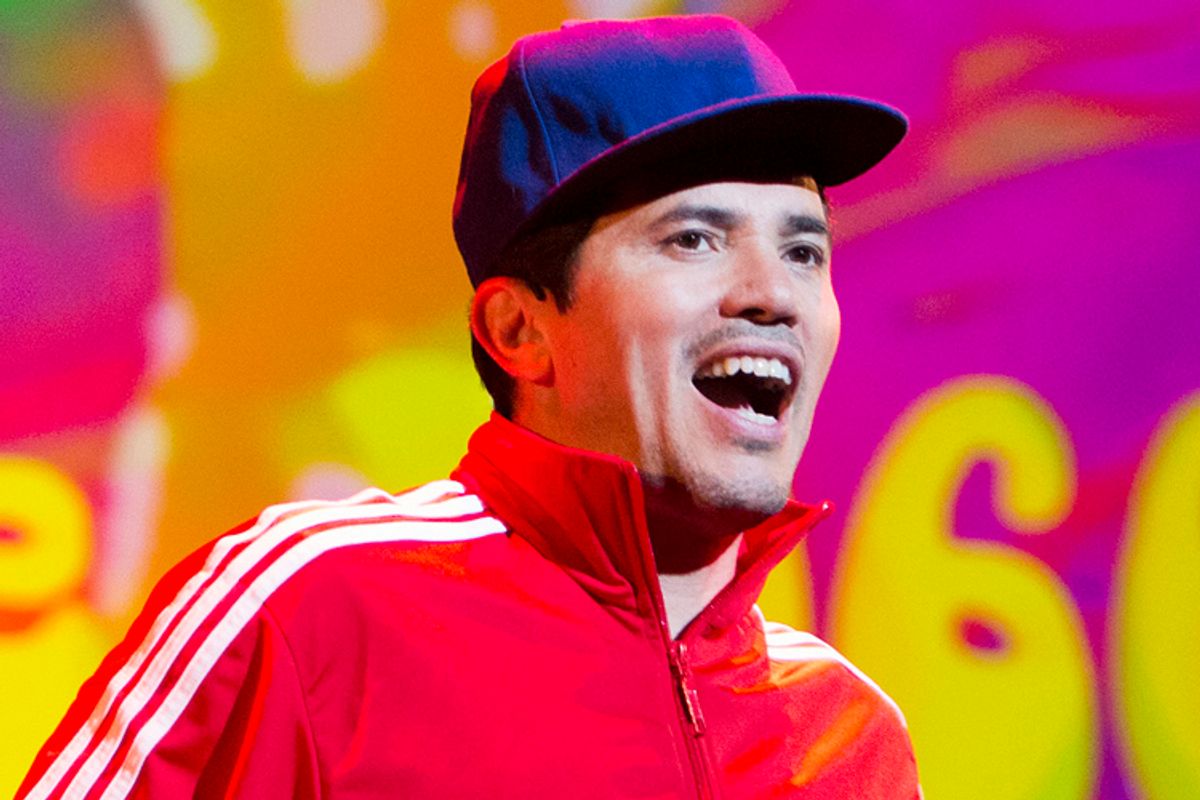The most egregious thing about John Leguizamo’s fifth solo special for HBO is its title. At this point, “ghetto” is a term more likely to be deployed by one teenager against another in reference to the over-enthusiastic application of dark lip liner than to signify anything substantial about a person’s upbringing. More than overused or even passé, in the case of Leguizamo’s gradually gripping stage memoir, the word almost seems misleading.
He begins his story in Queens, factually one of the most diverse urban locales on the planet. I don’t know what specific blocks Mr. Leguizamo claims, but blanketing the entire borough with the term “ghetto” belies its cultural richness. Fortunately, the skilled character actor’s kinetic storytelling does not. Alone onstage and knocking at 50's door, Leguizamo is still able to convey the exuberance of youth and vividly recall the optimism of a big-city kid discovering his passion for the first time. (Plus, dude’s got some ill dance moves, from salsa to hip-hop and more.) When he hops up on that raised platform doubling as a subway car, he might be the most hopeful straphanger New York has ever seen.
Perhaps Leguizamo is having a bit of fun with “ghetto’s” negative connotation, seeing as how the show is not actually about escaping one's past. “Ghetto Klown” covers the highs and lows of John Leguizamo’s career as a stage, film and television actor – and, yes, I am aware of how trite and worn that all sounds. But he has always carried his origins – his music, his Latino heritage, his neighborhood – with him, literally and figuratively. The drama and humor emerge as he clashes with the absurdity of an even more problematic ‘hood: Hollywood. Al Pacino fans will appreciate Leguizamo’s wilting experience on the set of “Carlito’s Way” – or not.
The actor’s struggles in the entertainment world encompass all that one might expect. There are the soaring heights of success, fame and some wealth. There is plenty of rejection, followed by self-doubt and depression. Leguizamo uses a graphic video ode to his own particular shame spiral as one way of knitting the narrative together. There is even bittersweet romance. After four previous specials filled with autobiographical material, it’s a wonder that any aspect of his life remains unexplored. (While he talks openly about working on “To Wong Foo, Thanks for Everything, Julie Newmar” and Baz Luhrmann’s “Romeo + Juliet,” the prolific thespian leaves out references to Spike Lee, his unforgettably flatulent role in “Spawn,” or voicing an alien in my guilty pleasure, “Titan A.E.”)
There is an aspect of coming home inherent in the fact that “Ghetto Klown” represents Leguizamo’s return to theater -- his first love -- after a long, self-imposed hiatus. It is a personal triumph that only becomes possible after he reconciles with important friends and family – specifically those he has cruelly or proudly mined for material over the years. However meaningless the word “ghetto” may have become, in the end, Leguizamo must acknowledge its value to him.
("Ghetto Klown" debuted on HBO this Sunday. It airs again Thursday night.)



Shares